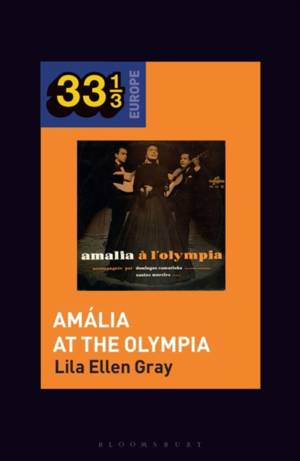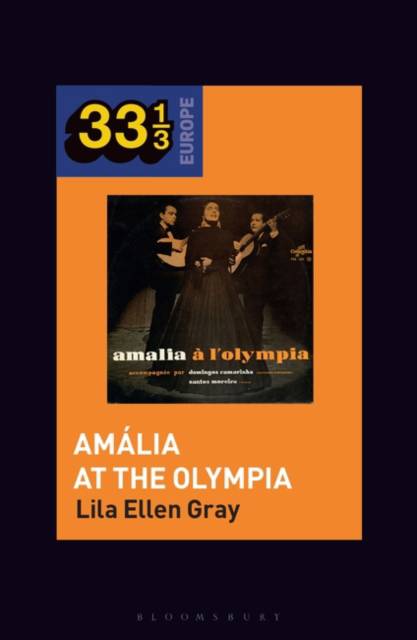
Bedankt voor het vertrouwen het afgelopen jaar! Om jou te bedanken bieden we GRATIS verzending (in België) aan op alles gedurende de hele maand januari.
- Afhalen na 1 uur in een winkel met voorraad
- In januari gratis thuislevering in België
- Ruim aanbod met 7 miljoen producten
Bedankt voor het vertrouwen het afgelopen jaar! Om jou te bedanken bieden we GRATIS verzending (in België) aan op alles gedurende de hele maand januari.
- Afhalen na 1 uur in een winkel met voorraad
- In januari gratis thuislevering in België
- Ruim aanbod met 7 miljoen producten
Zoeken
€ 135,95
+ 271 punten
Uitvoering
Omschrijving
The voice of Amália Rodrigues (1920-1999), the "Queen of Fado" and Portugal's most celebrated diva, was extraordinary for its interpretive power, soul wrenching timbre, and international reach. Amalia à l'Olympia (1957) is an album made from recordings of her first performances at the fabled Olympia Music Hall in Paris in 1956. This album, which was issued for multiple national markets (including: France; USA; Japan; Britain; the Netherlands) catapulted Amália Rodrigues into the international limelight. During its time, this album held the potential for international listeners, outside of Portugal, to represent Portugal, while also standing in for cosmopolitanism, the glamorous city of Paris, and to present a sonorous voyage in sound.
This book introduces readers to the voice of Amália Rodrigues and to the genre of the Portuguese fado, offering a primer in how to listen to both. It unpacks this iconic album and the voice, sound, style, and celebrity of Amália Rodrigues. It situates this album within a historical context marked by cold war Atlanticist diplomacy, Portugal's dictatorial regime, and the emergence of new forms of media, travel, and tourism.In so doing, it examines processes that shaped the internationalization of peripheral popular musics and the making of female vocal stardom in the mid-20th century.
This book introduces readers to the voice of Amália Rodrigues and to the genre of the Portuguese fado, offering a primer in how to listen to both. It unpacks this iconic album and the voice, sound, style, and celebrity of Amália Rodrigues. It situates this album within a historical context marked by cold war Atlanticist diplomacy, Portugal's dictatorial regime, and the emergence of new forms of media, travel, and tourism.In so doing, it examines processes that shaped the internationalization of peripheral popular musics and the making of female vocal stardom in the mid-20th century.
Specificaties
Betrokkenen
- Auteur(s):
- Uitgeverij:
Inhoud
- Aantal bladzijden:
- 176
- Taal:
- Engels
- Reeks:
Eigenschappen
- Productcode (EAN):
- 9781501346200
- Verschijningsdatum:
- 24/08/2023
- Uitvoering:
- Hardcover
- Formaat:
- Genaaid
- Afmetingen:
- 127 mm x 203 mm
- Gewicht:
- 299 g

Alleen bij Standaard Boekhandel
+ 271 punten op je klantenkaart van Standaard Boekhandel
Beoordelingen
We publiceren alleen reviews die voldoen aan de voorwaarden voor reviews. Bekijk onze voorwaarden voor reviews.









